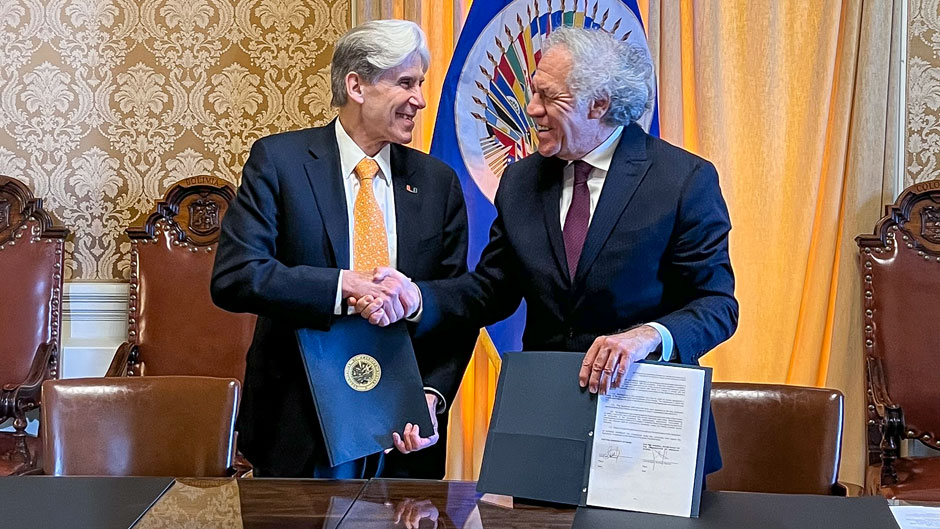In an event in Washington, D.C., Tuesday, the University of Miami formalized its partnership with the Organization of American States (OAS) to share research, academic activities, and guidance that will help the OAS in its mission, including shaping the agenda for the next Summit of the Americas scheduled to take place in Los Angeles in June.
As the catalyst that helped form the Hemispheric University Consortium—a group of top universities across the Americas stretching from Canada and the United States to Mexico, Latin America, and the Caribbean—the University of Miami is uniquely positioned to assist organizations and communities to make informed decisions on critical issues impacting the world today.
“The Organization of American States is the leading institution promoting regional cooperation in the Western Hemisphere, and a critical function of the University is to serve as a bridge for dialogue with policy makers,” said University of Miami President Julio Frenk. “We believe the OAS will be an ideal partner to enhance our collaborative efforts across the Americas.”
Luis Almagro, secretary general of the OAS, said he embraced the new partnership. “Institutions such as the University of Miami, with its history and achievements, share the main values of our organization, such as the promotion and defense of democracy, human rights, hemispheric security, integral development, and Inter-American law,” he noted.
The OAS, crafted in 1948 and representing 35 states throughout the Americas, focuses on four pillars of importance: democracy, human rights, security, and development.

